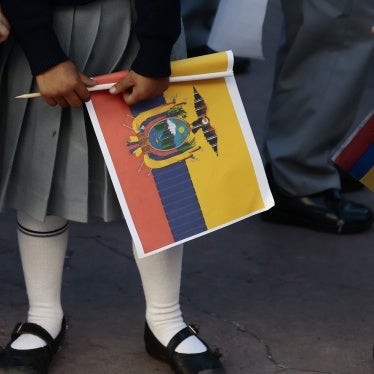Every day, children are subjected to various forms of violence, including humiliating, degrading and deeply harmful acts, in and around schools, often by the very teachers and education personnel who should be protecting them. In many contexts, students and school staff see many of these abuses as normal, further cementing the impunity that surrounds them.
On May 20, 2025, Education Ministers and state representatives from 11 countries established a Ministerial Taskforce to tackle violence in and around schools. The taskforce is a result of last year’s first ever global conference on violence against children in Bogotá, Colombia, where governments, international organizations, and civil society members pledged to protect children from all forms of violence. Some signed the Safe to Learn Call to Action, a nonbinding call for governments to comprehensively tackle school-related violence.
While the taskforce addresses violence in all forms, it has rightly placed special emphasis on prohibiting corporal punishment in schools.
As the taskforce moves forward, it should also prioritize tackling and preventing school-related sexual violence (SRSV). SRSV has deep, long-term effects on young survivors and takes many forms including rape and sexual abuse against students of all ages, sexual coercion for grades and fee waivers, and pervasive sexual harassment and exploitation by teachers and peers. It also takes place online, including through the nonconsensual sharing of students’ intimate photos through school networks and apps.
SRSV affects all children: Though girls are disproportionately affected by SRSV and its consequences, boys, as well as lesbian, gay, bisexual, and transgender (LGBT) and nonbinary children, also suffer from it, very often in silence due to stigma and discrimination. Justice for all survivors of SRSV is seriously lacking.
In 2024, over 200 organizations, including Human Rights Watch, signed an open letter urging all governments to treat SRSV with the seriousness and urgency it requires. The global taskforce should heed this call. It should explicitly acknowledge that SRSV is widespread and a problem affecting all countries, urge ministers to pledge to end impunity for SRSV and adopt evidence-based measures to prevent it.
Countries that established the taskforce should lead by example and prioritize national strategies to tackle and prevent SRSV, including cases that occur online, allocate sufficient funds to match their commitments, and strengthen accountability for abuses happening in their own education institutions.










